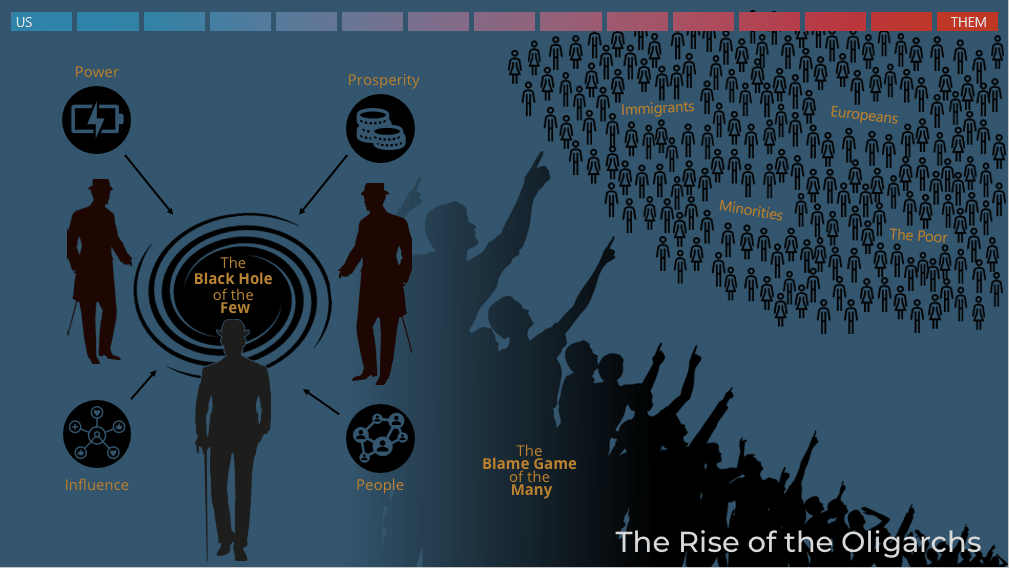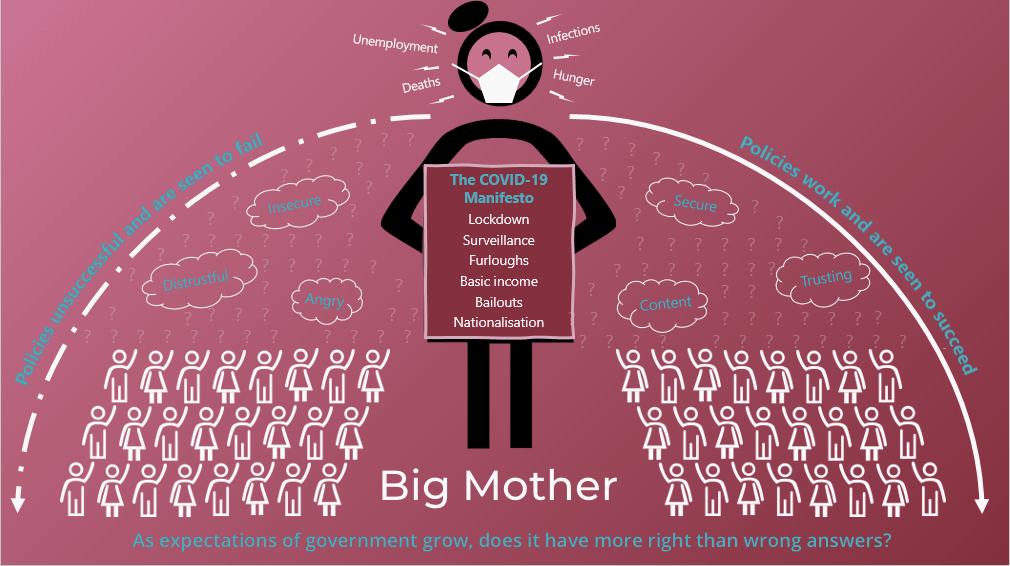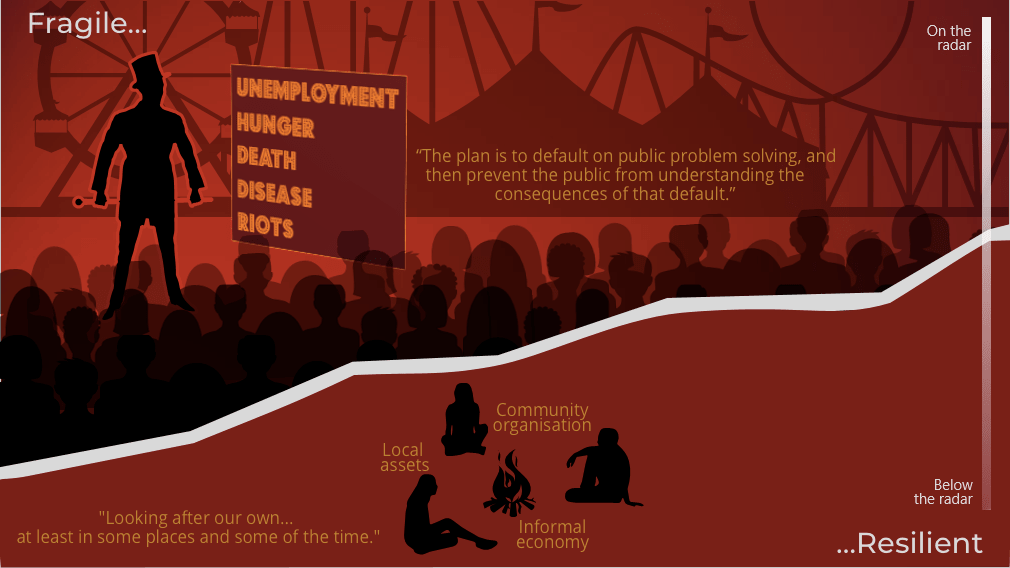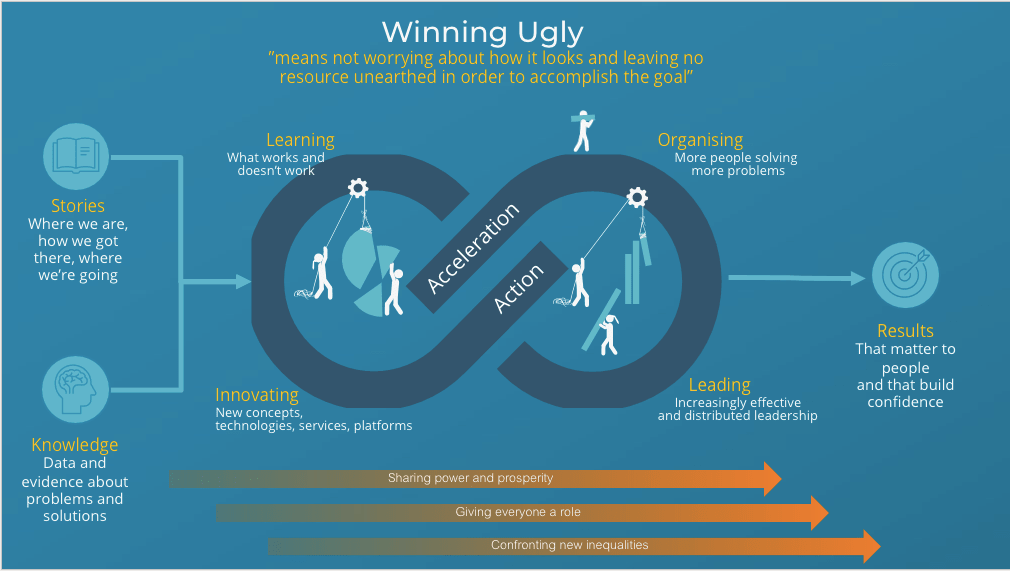Created in partnership with:

COVID-19 marks a turning point in the 21st century.? Levels of uncertainty are off the chart, making predictions impossible. ?But if we can create plausible stories about different futures, we create a foundation for decision makers, campaigners, and communities to influence the process of change.?
Working in partnership with Local Trust, our new venture, The Long Crisis Network, has created scenarios that imagine what could happen, allowing us to explore what different pathways into the future could look like.?
We start with the nature of the risks we face in the long crisis of globalisation – a turbulent period in which risks proliferate across borders as rapidly as opportunities. We then explore the difference between high and low resilience systems, and what it takes to respond to a crisis when events are running out of control.
The COVID-19 pandemic is the latest and greatest of a series of shocks to global systems. It has three layers – a public health emergency that will continue for two years or more, an economic disaster that will take at least five years to unfold, and a crisis of polarisation and insecurity that could take a generation to play out fully.
Drivers of Change
Two drivers will shape how societies respond to the emergency. Will a crisis force people to work together or will it divide them? And will the response be centralised or distributed? These drivers frame four scenarios:

1. In the Rise of the Oligarchs, the dark phoenix that emerges from COVID-19’s ashes is a government of the few. It’s polarised, xenophobic, and corrupt.

2. Big Mother sees government take charge. The response is ambitious but uninventive.

3. Fragile Resilient is a future where things fall apart – with chaos tempered by innovation.

4. Winning Ugly sees an uneven process of renewal. No obvious victory but a steady increase in a society’s ability to organise, learn, and adapt.
We compare these scenarios across four dimensions: who has power? What do they mean for prosperity? What impact do they have on people and places? And what are the pathways from one scenario to another?
Finally, we explore the implications of the scenarios for the way forward. How do we move from Them and Us to Larger Us thinking? What do we need to do now to promote positive outcomes in the short, medium, and longer term? Who are the actors in a Larger Us movement? And which strategies are mostly likely to be effective in the future described by each of the scenarios?
The Scenarios
The unknowns on the public health, economic, and insecurity layers of the COVID-19 emergency are compounded by equally deep uncertainty about how we will react. ?
At all levels, we face choices between collective action and polarisation. ?Millions of lives, billions of people’s futures, and trillions of dollars depend on whether we act collectively in the face of crisis or instead polarise when under threat.? The response can also be centralised or distributed. In the rapids, does the captain steer the ship alone or does she also empower everyone to row?? Four scenarios reflect these choices.
Scenario 1 – Rise of the Oligarchs
Divided | Corrupt | Xenophobic

Like a dark phoenix from the ashes, the winner from COVID-19’s crises is a government of the few. It’s inequitable, illiberal, corrupt, opaque – and ineffective.
No-one thought that it would be this bad: the spread of the pandemic, the economic pain, or the damage to people’s lives. But through it all, the powerful – in politics, business, and the media – protect their own.
People are angry, but also scared and compliant. Stranded between apathy and the latest conspiracy theory. Risk takerslive at the bottom, not the top of the pile.
International co-operation withers and geopolitical tensions proliferate. In a world of closed borders, racism and xenophobia flourish.
Scenario 2 – Big Mother
Statist | Ambitious | Uninventive

Government is BACK and it’s here to help.
Politicians are expected to deliver: a vaccine, an income, a future.To keep the lights on both literally and figuratively. People are told what to do by a state that promises to look after them. Lockdowns are sporadic but behaviour is constantly monitored and regulated.
The social contract is clear, but the strain is showing. The government has plenty of answers, but seldom the most imaginative ones.
And it continually increases expectations while elbowing others aside. When it gets it wrong, people feel betrayed and anger surges.
Scenario 3 – Fragile Resilient
Chaotic | Vulnerable | Innovative

Repeated waves of COVID-19 – and a financial crash, food system crash, energy crash, trade crash – overwhelm the capacity of a state that finds itself in the latter, more frenetic, stages of a game of Tetris.
Amid intensifying levels of drama and chaos, national politics increasingly becomes a competition for what is left of the spoils. Bubbles inflate and burst. Fortunes are made – and lost.
At the grassroots, there’s a surge of innovation as communities fend for themselves. Like Italian towns facing the Plague or developing countries today, people are fantastically inventive when making the best of a bad job.
Scenario 4 – Winning Ugly
Distributed | Function not Form | Learning | Emergent

No-one said it was going to be easy.
No obvious sign the battle was won. No heroic moment of victory. Instead, an extended – and at times seemingly endless – attack on the pandemic. One that started in hospitals, moved into communities, and was driven by a collective willingness to learn and adapt.
The economic trauma was profound, but institutions held. Not just the organisations, but our ability to organise. To draw on reserves of community cohesion. To replace failed leaders with a new generation.
At first, we just threw money at the problem. But over time, this created space for smarter approaches to proliferate and for the emergence of a narrative that promotes collective action to tackle other urgent risks such as climate change.
Towards a Larger Us
If these four disparate scenarios make one thing clear, it is that we are at a point at which the future is up for grabs. Them and Us thinking could drive us further towards breakdown – but a Larger Us movement still has everything to play for. A future where the toll of the pandemic is still heavy, but our capacity for collective action grows.
For the full story of our four scenarios and more on the long crisis of globalisation, read the report here – Our COVID Future: The Long Crisis Scenarios




